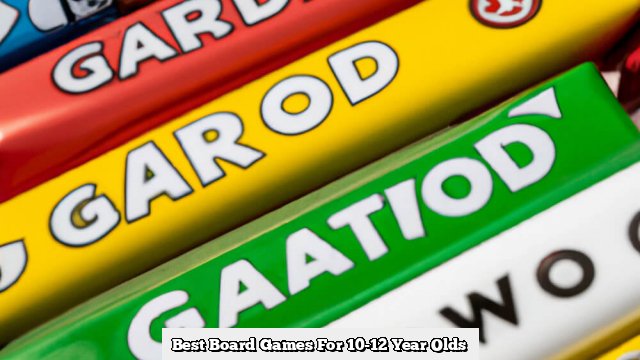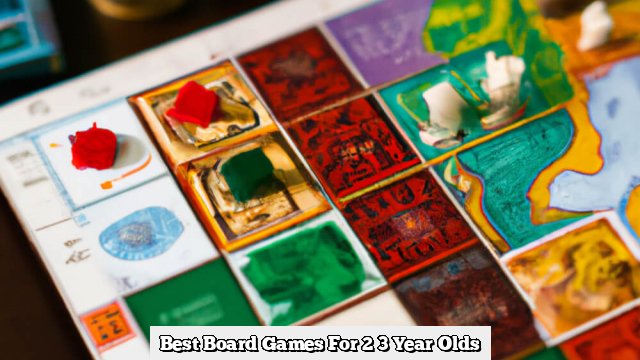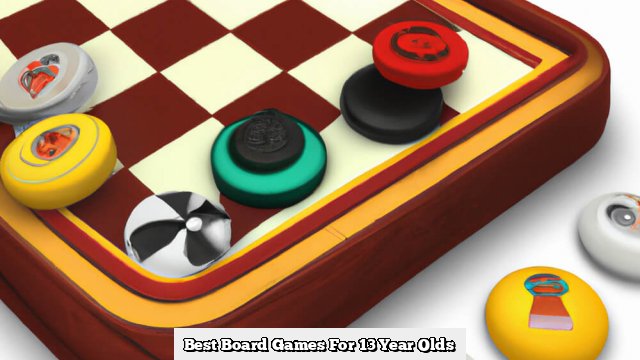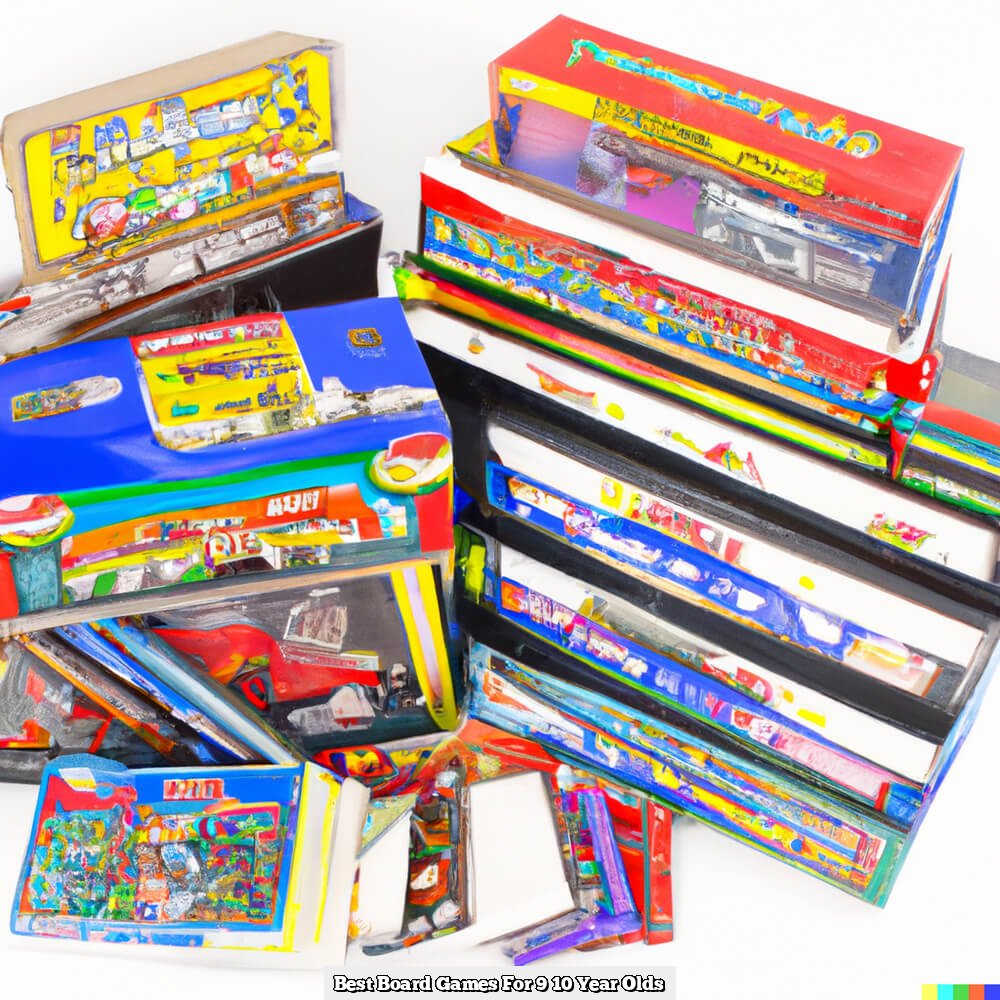Introduction
Board games for 6 to 10 year-olds offer many benefits for young children, helping them with their physical, emotional, and intellectual development. Studies have shown that playing board games can help children develop problem-solving skills, strategic thinking, basic mathematics concepts such as sorting and counting objects, patterns and sequencing. These are key skills required to successfully master even more demanding tasks later on in life. Through playing board games with peers or family members, children can practice interpersonal and communication skills such as team work, taking turns and managing conflict effectively. Board games also encourage collaboration rather than competition; this helps build resilience when it comes to losing a game or completing a task successfully. Furthermore, board game play has been linked to improved relationships between family members and peers due to the shared experience of strategy and imaginative play. In short, board games provide an enjoyable way for people of all ages to learn new things whilst enhancing skill development and having fun!
Learning Benefits of Board Games
Board games are a great way to help 6 to 10 year-olds develop various skills and knowledge. Kids this age can benefit in a variety of ways by playing board games, both socially and cognitively. Here are some key educational benefits of board games that 6 to 10 year-olds can enjoy:
1. Math skills – Playing board games at this age can help strengthen basic math skills such as counting, addition, subtraction, fractions, pattern recognition and much more.
2. Memory – Board games involve recalling different pieces of information, either pictured on the board or heard during game play. This helps children improve their memory and recall abilities while they’re having fun.
3. Problem solving – Many popular board games involve challenging puzzles or scenarios that need solving in order to win the game. Solving these mental problems teaches kids how to find various solutions to everyday challenges through problem-solving strategies.
4. Turn taking – Young children often have difficulty sharing and taking turns with others in cooperative situations—a skill they’ll use throughout life. Board gaming helps foster this ability through the rules of its gameplay which require turn taking for progressing through each challenge set during game play.
5. Social interaction – Learning how to interact with others is essential for young children in order to build interpersonal relationships and friendships later on in life; an important part nowadays even when social distancing is enforced due video conferencing/chatting services available online/smartphones/tablets etc.. When challenging each other through multiplayer board games it encourages socialisation with peers; something which modern devices lack as it doesn’t emulate true interaction between real human beings who have face-to-face contact!
Popular Board Games for 6 to 10 Year-Olds
1. Pie Face!: A classic game of suspense that tests a player’s wit and timing. Fill the ‘pie thrower’ with whipped cream, then spin the wheel on your turn to see how many times it will flick. The last player standing without getting a pie face wins!
2. Connect 4: An easy-to-learn game for two players, Connect 4 requires strategy and forethought to win. Take turns placing four discs of one color in a vertical, horizontal or diagonal row before your opponent does and be sure to block those attempts while doing so.
3. UNO Attack: This classic game has been updated with this version that includes an electronic card shooter adding an element of strategy and speed to the game as players race to be first discard all their cards. The first person empty-handed is the winner!
4. Sorry!: Another timeless favorite has remained popular across multiple generations — especially among kids age 6 to 10 years old! A great board game they can learn quickly that teaches strategy and counting skills too, maneuvers like ‘sorry’ can make all the difference between winning or losing!
5. Battleship: More than just a nostalgic favorite, this stimulating mental exercise requires careful strategic moves from both participants as each places their ships atop grids with plans to destroy their opponent’s fleet through blind guessing attacks using coordinates drawn from dice games roles
6. Blokus: This vibrant four-player board offers interesting map obstacles since every piece placed affects its players’ movement strategies in subsequent turns – giving craftier players an edge where spatial skills are concerned!
7. Pandemic: A team effort! Upwards of 2 – 4 people collaborate together in this highly engaging pandemic simulator where each chooses different types of characters — eg: scientist, medic — whose specialties play into how teams should approach diseases, cities and other goals in attempting to reach the cure before succumbing to runaway outbreaks along the game boards timelines
8. Jenga: Everyone loves challenging friends and family members layering wooden blocks ever higher, making increasingly precarious towers requiring massive precision to not allow it collapsing while climbing them tower ever taller forms hours of fun!
9. Checkers: The captivating mind sport pitting two against each other hidden behind 16 pieces on alternating colored checkered fields continues winning generations over by teaching planning abilities as well as foresight involved when plotting impending jumps upon opponents pieces towards their meditative conquest destination
10 Monopoly Junior: An entertaining introduction for children age 6 – 10 years old into Monopoly world famous monopoly variant with hallmark attractions including No jail time or auctions which instills values such as money management plus learning opportunity around the loveable Disney characters navigating them through investments deals while having fun at same time !
Tips for Shopping for Board Games
When shopping for board games for 6 to 10 year-olds, look for games that are designed to the age group. Many children’s board games will come with age recommendations on the box. Try to avoid games that may be too complicated or you may frustration among the players.
Always take the time to read about and learn about each game you’re considering purchasing. Check reviews from other parents and even older siblings so you can get an accurate assessment of how long the game takes, how difficult it is, and if there are elements of luck involved in gameplay.
Be sure to also take into account what interests your child when choosing a board game. While some educational board games can teach real-world lessons, such as geography or economics, if your child has no interest in these topics they might quickly become uninterested in playing said game. Instead opt for more creativity based or fantasy-based games which invite imagination and joy!
Finally, always consider who you’re playing with when selecting a board game – if it’s just one child versus another adult (or an experienced player), then look for a game that has been well balanced toward both abilities so everyone can have fun!
Creative Alternatives
For those looking for creative alternatives to the traditional board games, there are many options available. Creative board game ideas offer a fun and varied experience that encourages active participation from 6 to 10 year-olds. Popular ideas include classic card games such as Crazy Eights, Go Fish, and Memory Matching; cooperative games like Forbidden Island and Pandemic; strategy games such as Blokus or chess; and word games like Hangman or Scrabble. These types of games can be played in pairs or small groups to promote teamwork and socializing among children. Board game clubs offer an additional opportunity to combine the thrill of competition with creative design skills in an exciting environment. Additionally, there are computer-based versions of traditional board games that allow children to use a mouse or keyboard while playing with friends virtually. With the increasing availability of interactive technology, these age-friendly resources are sure to keep every child entertained!
Final Considerations
When selecting board games for 6-10 year olds, parents should also factor in their level of involvement. Some board games involve the parent taking a more active role in guiding children through the game. For example, popular kids’ board game Candy Land involves someone being designated to play the role of “Candy Cane Caller” who reads out cards indicating how much children move their pieces on the gameboard. Other popular board games like Chutes and Ladders require significantly less parental involvement and are self-guided, so it is important to consider how much you as a parent want to be involved. Board games can be great opportunities for families to get together and have fun, so parental involvement may be desirable for creating that bonding experience even though it does require a bit more effort from an adult’s perspective.
Conclusion
Board games are excellent tools for 6 to 10 year-olds to develop important skills such as problem solving, strategy, cooperation, and communication. They also encourage creativity and help children engage with the world in a different way compared to video games. Board games are an effective educational resource that can help kids learn basic mathematics, science, literacy and other practical knowledge. Furthermore, board games provide an opportunity for parents and children to bond and interact in a fun and stimulating environment. The importance of board games cannot be understated; they can have a positive impact on a child’s mental development and even contribute towards their future success in the classroom.

I love playing all kinds of games – from classics like Monopoly to modern favourites like Ticket to Ride.
I created this blog as a way to share my love of board games with others, and provide information on the latest releases and news in the industry.





